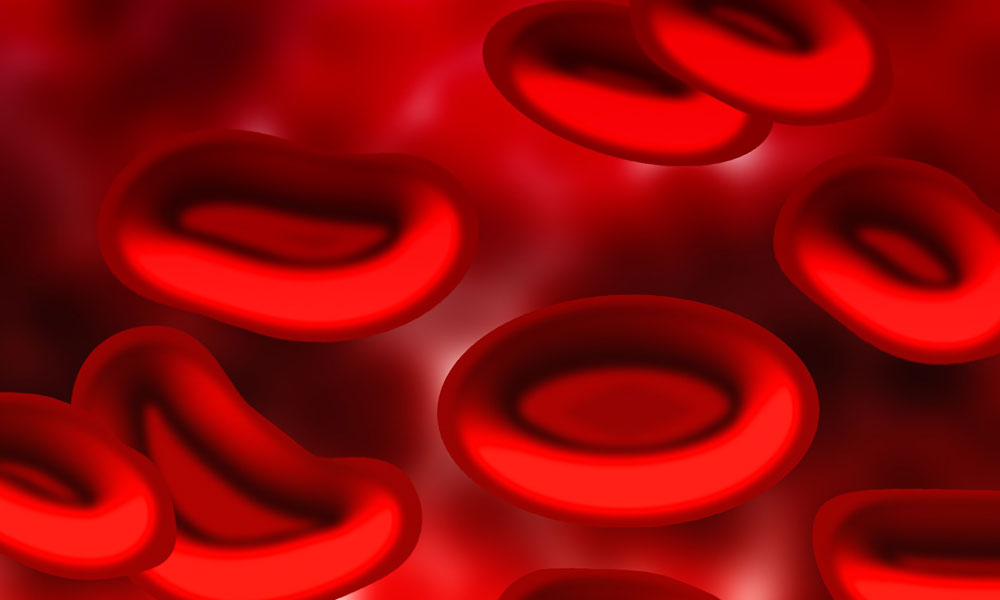When you find that Hemoglobin level in your blood is lower than expected, how will you react? There is no need to worry or panic. In this article we will try to understand
- What is Hemoglobin?
- What is normal range of Hemoglobin in blood?
- What happens when Hemoglobin level goes down?
- What to do if Hemoglobin level goes down below normal?
What is Hemoglobin (Hb) ?
Every living human being breathes and oxygen is taken in by lungs. This oxygen needs to be circulated to body parts and this job is done by Hemoglobin. Hemoglobin is a protein which is found in red blood cells and is responsible for carrying oxygen from the lungs to all other tissues of the body. Red Blood Cells (RBCs) circulate through the lungs and Hemoglobin in RBCs picks up oxygen (by binding). The cells who are in bond with oxygen are called as oxyhemoglobin and carry oxygen to tissues and cells. Once oxyhemoglobin reaches its desired destination it releases oxygen and now it becomes hemoglobin again from oxyhemoglobin and resumes its duty of circulating oxygen from lungs to body parts.
What is normal range of Hemoglobin in blood?
Normal Hemoglobin Range*
Adult males : 14 to 18
Adult females : 12 to 16
Pregnant women : 11 to 12
Middle-aged men : 12.5 to 15
Middle-aged women : 11.5 to 14
Newborns : 17 to 22
One-month-old baby : 11 to 15
Children : 11 to 16
* units in gm/dl
What happens when Hemoglobin level goes down?
Anemia, a low hemoglobin level in blood is called Anemia, which indicates a variety of serious medical conditions that may require immediate treatment. In many cases a slightly lower Hemoglobin count is not considered significant and shows no symptoms either.
How to increase blood Hemoglobin levels?
Answer varies from person to person and Hemoglbin levels. If Hemoglobin levels are slightly lower than normal then it won’t be considered significant and a planned diet with supplements can heal your problems. However if Hemoglobin levels are lower significantly then medical practitioner may go for a treatment to cure it. Below are some of diet tips to increase Hemoglobin levels.
Supplements and Food Sources:
In case of Iron deficiency Anamia, as a supplement to tackle iron deficiency in body doctor might advice and start an iron supplement in form of capsules or liquid syrups. You should include iron rich food in your diet along with supplements. Vitamin B6, B12 and folic acid are also found beneficial for increasing hemoglobin levels.
Suggested Fruits and Vegetables:
Green leafy vegetables, Tomatoes, Brussels sprouts, Beans, Cabbage, Peas, Beets, Asparagus, Corn Orange, Cantaloupe, Pineapple, Grapefruit, Banana, Raspberry, Strawberry, Guava, Papayas, Kiwi fruit
Herbal Remedies
Withania, Fenugreek seeds, Dandelion greens, Nettleleaf, Dong Quai, Ashwagandha, Carao fruit, Rosemary, Red Raspberry leaf
Other Foods
Eggs, Shellfish, Red meat, Fortified cereals, Dry fruits, Sunflower seeds, Soymilk, Black sesame seeds, Whole grains, Baker’s yeast, Oat and Wheat bran, Peanut butter
Reduced intake of oxalic acid:
It is said that food rich in oxalic acid can make it difficult to absorb the oxalic acid and hence food containing oxalic acid shall be avoided. Example, Spinach.
Iron blockers:
Food items who affect body’s ability to absorb iron shall be avoided while you are on iron supplements. Food items like tea, coffee, milk, calcium affects bodies capacity to absorb iron and hence shall be avoided.
Vitamin C:
It is suggested that you should increase the intake of vitamin C or food items containing vitamin C as it enhances absorption of iron into body.
Above mentioned tips can help you to increase hemoglobin levels in human body
Disclaimer: This article is for informational purposes only and should not be used as a replacement for expert medical advice. Visiting your physician is the safest way to diagnose and treat any health condition.



